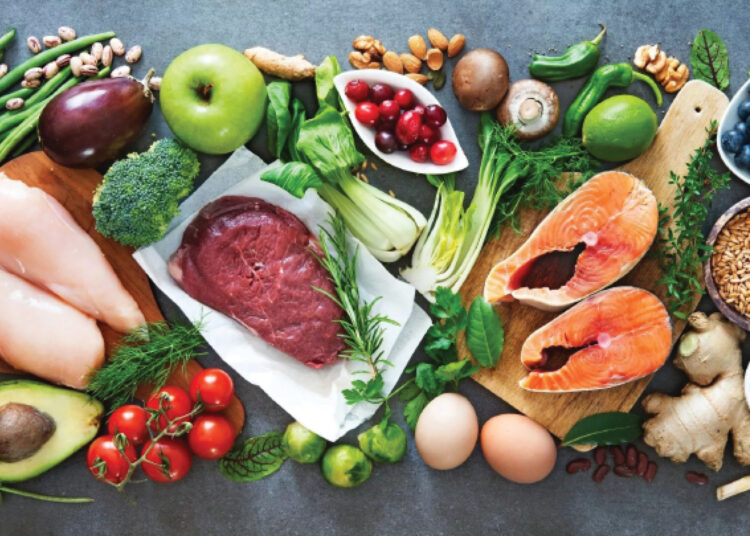Crohn’s disease, a chronic inflammatory condition of the digestive tract, poses unique challenges when it affects children. Young patients often experience symptoms such as abdominal pain, diarrhea, fatigue, and impaired growth, typically managed with long-term use of medications like corticosteroids and immunosuppressants. However, growing interest among healthcare professionals is shifting toward the potential of dietary intervention. Emerging research suggests that carefully structured elimination diets, when guided by medical and nutritional experts, may help control symptoms and even reduce reliance on medication in children with Crohn’s disease.
Let’s have a look on how the right dietary strategy, especially elimination diets, can help manage this condition more naturally.
Let’s explore how the right dietary approach , particularly elimination diets can help manage Crohn’s disease more naturally.
The Role Of Diet In Pediatric Crohn’s Disease
Traditionally, diet has been considered a supportive measure rather than a primary treatment for Crohn’s disease. However, growing research now highlights the significant impact food can have on gut inflammation and healing. For children with Crohn’s, this shift in understanding could be transformative—providing symptom relief and potentially lowering the need for medication.
Here are three key dietary approaches currently under investigation:
1. Exclusive Enteral Nutrition (EEN)
This approach replaces all food with a nutritionally complete liquid formula for several weeks. It’s highly effective in inducing remission in children with active Crohn’s disease and is considered first-line therapy in many pediatric gastroenterology guidelines.
Pros Of It
Nutritionally balanced
Drug-free remission
Promotes healing of the gut lining
Cons Of It
Strict and difficult to follow
Social and psychological challenges for kids during long use
2. Specific Carbohydrate Diet (SCD)
The SCD eliminates grains, most dairy, processed foods, and sugars foods believed to irritate the gut or fuel harmful bacteria.
How It Helps:
Limits complex carbs that may worsen inflammation
Encourages gut-friendly foods like fermented yogurt, fresh vegetables, and lean protein
Some studies have shown improved symptoms and reduced inflammation markers in kids with Crohn’s who follow this diet. However, medical supervision is essential to avoid nutrient deficiencies.
3. Crohn’s Disease Exclusion Diet (CDED)
CDED is a newer, structured elimination diet developed specifically for pediatric Crohn’s. It combines partial enteral nutrition (a formula) with whole foods and eliminates specific food additives, animal fats, and gluten.
Why It Works:
Targets dietary components that disturb the gut microbiome
Shown in clinical trials to induce and maintain remission
More sustainable and less restrictive than EEN or SCD
Can These Diets Replace Medication
The goal of diet therapy isn’t necessarily to replace medication entirely but to reduce reliance on drugs, especially corticosteroids which have side effects in children such as stunted growth and weakened immunity.
In fact, studies show that:
Children on EEN or CDED can achieve remission without steroids.
Nutritional therapy may reduce the dosage or frequency of medications.
Better symptom control with fewer flares has been observed with long-term dietary adherence.
That said, each child’s response is different, and medical guidance from a pediatric gastroenterologist and registered dietitian is vital. Regular monitoring ensures the child maintains healthy growth, adequate nutrition, and gut healing.
A Kid-Friendly Anti-Inflammatory Recipe For Crohn’s Flare Management
Soothing Chicken & Vegetable Puree
(Based on SCD and CDED-friendly principles)
Ingredients:
1 skinless chicken breast, chopped
1 cup peeled carrots, chopped
½ cup zucchini, chopped
1 small sweet potato, peeled and cubed
1 tbsp olive oil
2 cups low-sodium homemade chicken broth
½ tsp turmeric
Salt to taste (if advised by a doctor)
Directions:
In a pot, heat olive oil and lightly sauté the chicken until opaque.
Add the carrots, zucchini, and sweet potato. Stir for 2–3 minutes.
Pour in the broth and turmeric. Bring to a boil.
Reduce heat and simmer for 30 minutes until everything is soft.
Allow to cool slightly, then blend to a smooth puree.
This soothing meal is gentle on inflamed guts, rich in protein, vitamins A and C, and contains anti-inflammatory turmeric—all in one child-friendly
Note;
For children living with Crohn’s disease, the kitchen can become a powerful partner in healing. Specific elimination diets like EEN, SCD, and CDED.When carefully supervised, offer promising pathways to manage inflammation, ease symptoms, and potentially reduce long-term medication use. While food may not replace medicine entirely, it can complement therapy, lighten the medication load, and restore a sense of normalcy to a child’s life.As always, personalized care is key. Consult your pediatric gastroenterologist and nutritionist to tailor the best diet plan for your child’s unique journey.











